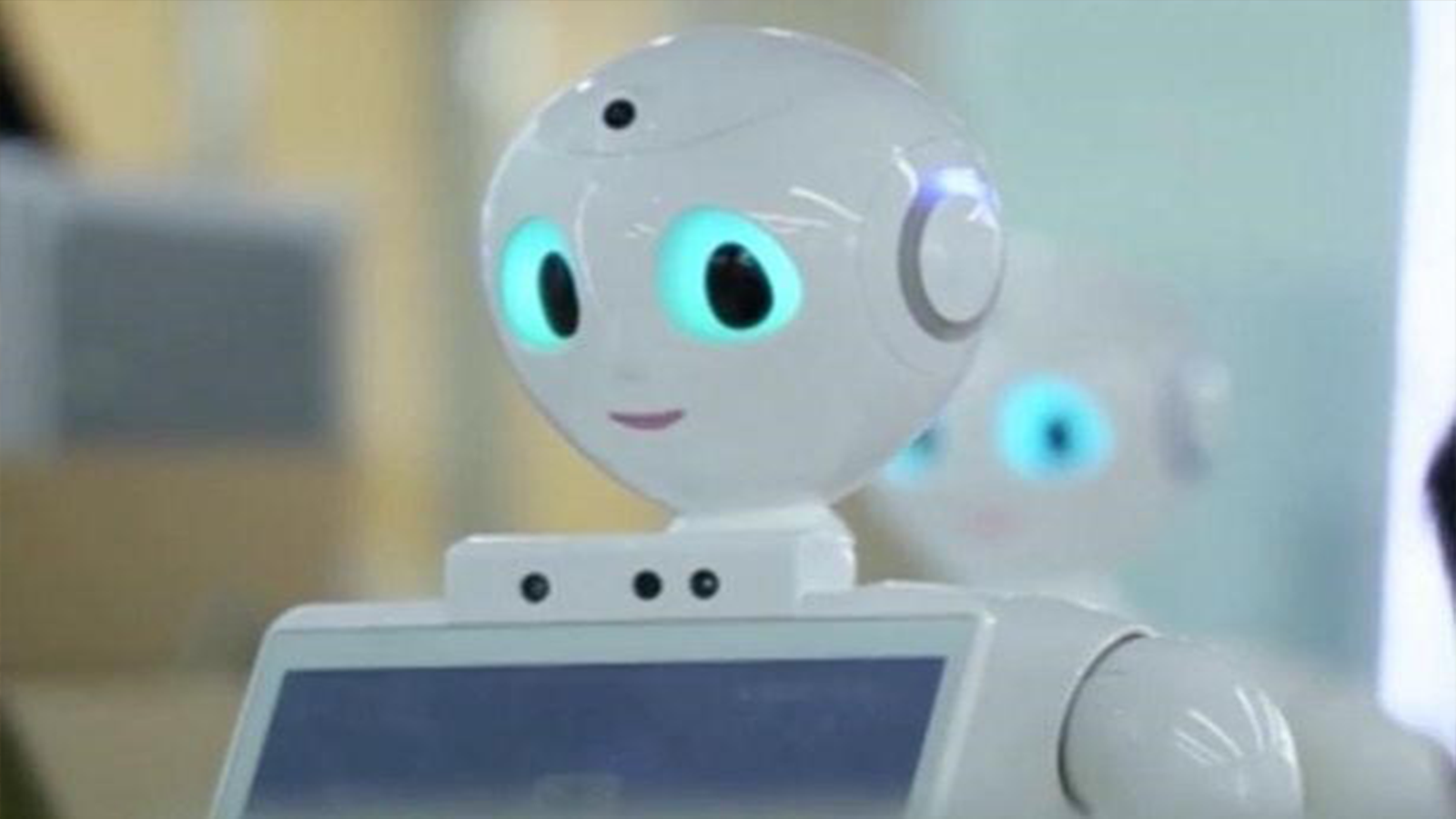Artificial Intelligence (AI) is a lifesaver in more ways than one. We’ve all read countless articles on how AI is being used to analyze data with pinpoint accuracy as to whether a brain scan may indicate a patient’s likelihood of developing Alzheimer’s or find the minutest evidence of a cancerous tumor in a blood test. Now, we hear that in China, a robot received its medical license—by passing the qualifying test with high scores!
Researchers from Tsinghua University, Beijing created a robot named Xiaoyi to help boost productivity and assist human doctors in treating patients who live in remote parts of China with limited access to medical help. Over a year was spent inputting data from dozens of medical books into Xiaoyi’s computerized “brain.”
On his exams, Xiaoyi was able to show a “reasoning process” when deciding how to treat symptoms, instead of just accessing information. This robot not only mastered medical and clinical knowledge but also demonstrated an ability to solve some problems using the knowledge gained.
A heady accomplishment to be sure but not necessarily a harbinger of what’s to come. Here’s Dr. Legato’s view:
“There’s no question about the enormous progress we’re making in developing artificial intelligence of various types that will make diagnoses faster and more accurate—and present us with the best ways of treating them. That having been said, there’s no substitute for the skills I like to think every good doctor has developed and continuously perfects in dealing with the people who come into the office.
I resist treating patients by telephone except when it’s really urgent to get them some intervention quickly. Why? Because patients tend to avoid a visit to the doctor if possible—it’s inconvenient and it’s expensive. But usually it’s essential to see, to listen to and to examine the sick person. I immediately assess everything about them, even before they know I’m doing it: how they’ve dressed for the visit, whether or not they seem fit and energetic, the tone and pace of their speech—and that’s even before we go to the examining table! People often are so afraid to admit the kind and extent of their symptoms that it’s only when they are on the point of leaving that they tell me the most important thing about their current health. So even when our helpful (and I think they can be VERY helpful) robot performs with astounding competence, it’s important to know that all of these immediate, important points of any assessment have been added to the input! How to quantify the sadness of an expression, a failing ability to choose the right words, an anxiety that makes the patient’s heart race…I’d rather do it myself than enter or read the data: it’s much quicker! I have even forbidden the use of forms prevalent in so many doctors’ offices: the pages of data about their health and history that patients are asked to fill in before they even meet the physician. I’d much rather ask for those data personally, and assess how the patient answers my questions.
So I hope I’m not replaced by a machine. If I can have one who helps me build an accurate diagnosis and points me to the right things to do to prove and treat it, that would be invaluable! In the meantime, I’ll continue to try to respond to patients with the right words, an appropriate tone of voice, and the carefulness with which I do my examination. I think these are the things that convince them I am aware of their needs, spoken and unspoken.
We already have very smart artificial intelligence aiding us every day; for example, apps can monitor how effective our diets and exercise regimens are while a multitude of programs are ready to address any of our questions. The computer is always on, ready to help me in a whole variety of ways. But I’d like to think that for any patient, talking to a competent and empathetic human being is better than surfing the net—as helpful as it often is to me and to them. Good medical care is still essentially an intimate collaboration between two human beings; one skilled and the other wanting access to those skills. The anxiety and fear that invariably accompany sickness, frailty and dying are best dealt with in person.
I’d be very interested in what all of you think.“
Marianne J. Legato, MD, Ph. D. (hon. c.), FACP is an internationally renowned academic, physician, author, lecturer, and pioneer in the field of gender-specific medicine. She is a Professor Emerita of Clinical Medicine at Columbia University College of Physicians & Surgeons and an Adjunct Professor of Medicine at Johns Hopkins Medical School. Dr. Legato is also the Director of the Foundation for Gender-Specific Medicine, which she founded in 2006 as a continuation of her work with The Partnership for Gender-Specific Medicine at Columbia University. She received an honorary PhD from the University of Panama in 2015 for her work on the differences between men and women.
At its core, gender-specific medicine is the science of how normal human biology differs between men and women and how the diagnosis and treatment of disease differs as a function of gender. Dr. Legato’s discoveries and those of her colleagues have led to a personalization of medicine that assists doctors worldwide in understanding the difference in normal function of men and women and in their sex-specific experiences of the same diseases.
She began her work in gender-specific medicine by authoring the first book on women and heart disease, The Female Heart: The Truth About Women and Coronary Artery Disease, which won the Blakeslee Award of the American Heart Association in 1992. Because of this research, the cardiovascular community began to include women in clinical trials affirming the fact that the risk factors, symptoms, and treatment of the same disease can be significantly different between the sexes. Convinced that the sex-specific differences in coronary artery disease were not unique, Dr. Legato began a wide-ranging survey of all medical specialties and in 2004, published the first textbook on gender-specific medicine, The Principles of Gender-Specific Medicine. The second edition appeared in 2010 and the third edition, dedicated to explaining how gender impacts biomedical investigation in the genomic era, won the PROSE Award in Clinical Medicine from the Association of American Publishers in 2018. A fourth edition is forthcoming.
She also founded the first scientific journals publishing new studies in the field, The Journal of Gender-Specific Medicine, and a newer version, Gender Medicine, both listed in the Index Medicus of the National Library of Medicine. She has founded a third peer-reviewed, open access journal, Gender and the Genome, which focuses on the impact of biological sex on technology and its effects on human life.
Dr. Legato is the author of multiple works, including: What Women Need to Know (Simon & Schuster, 1997), Eve’s Rib (Harmony Books, 2002), Why Men Never Remember and Women Never Forget (Rodale, 2005), Why Men Die First (Palgrave, 2008), The International Society for Gender Medicine: History and Highlights (Academic Press, 2017), and most recently, The Plasticity of Sex (Academic Press, 2020). Her books have been translated into 28 languages to date.
As an internationally respected authority on gender medicine, Dr. Legato has chaired symposia and made keynote addresses to world congresses in gender-specific medicine in Berlin, Israel, Italy, Japan, Panama, South Korea, Stockholm, and Vienna. In collaboration with the Menarini Foundation, she is co-chairing a symposium on epigenetics, Sex, Gender and Epigenetics: From Molecule to Bedside, to be held in Spring 2021 in Italy. She maintains one of the only gender-specific private practice in New York City, and she has earned recognition as one of the “Top Doctors in New York.”





